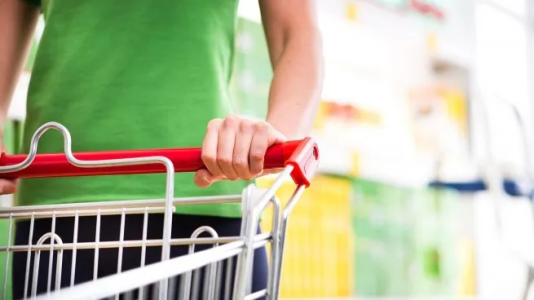All the Answers
Well-known member
The first imported foods arrive and the Government hopes that they will accelerate the decline in inflation - Ámbito Financiero
Source:

Llegan los primeros alimentos importados y el Gobierno espera que aceleren la baja de la inflación
Un mes después del anuncio oficial se comienzan a ver los primeros productos en las góndolas. ¿Qué precio tienen y cuál es la disputa en el sector?
April 29, 2024
By Giuliana Iglesias
A month after the official announcement, the first products begin to be seen on the shelves. What price do they have and what is the dispute in the sector?

SMEs disagreed and asked for regulation of foreign trade.
Depositphotos
A month ago, the national government announced the opening of imports for basic basket products , noting that "price increases above inflation" were detected . The measure was implemented through a Communication from the Central Bank (BCRA) that provided facilities for the access of foreign currency to 150 products in the basic basket . At the same time, AFIP was added, suspending payment of taxes on these imports. But what is known so far?
Although there were already imported products on the shelves prior to the Government's announcement, the fact is that they began to arrive in greater quantities in the first tranche, mainly from countries in the region such as Brazil and Uruguay.
According to what Ámbito was able to find out , there are prices for all tastes: although some compete at almost a similar value to that of local products, others, especially the most gourmet ones, have differences of up to 15%.
Imported food: the Government's objective
The Secretary of Commerce , which has already been working with the National Commission for the Defense of Competition , seeks to expand the offer to avoid cartelization and strengthen competition. Although this is expected to end up impacting prices and therefore inflation , many sectors, especially SMEs, see their work in check.According to a recent statement from Industriales Pymes Argentinos (IPA), "opening the borders so that there is a flood of finished products only has one real effect: we import work from countries that do bet on the industry, which implies that we will eliminate the local salary, the employment and also SMEs" and requested regulation in foreign trade to avoid indiscriminate opening.
According to sources in the sector, the first products that entered respond to the large supermarket chains and most important food producers. "SME supermarkets are not doing it and I don't think they will. They have no experience or structure to do it. The massive arrival is going to take a few months," they explained.
It is worth remembering that the main representatives of the food chains had issued a statement in which they showed their "concern" about the "unequal" treatment for the industry.
"While national producers must pay in 4 monthly installments and with PAIS tax for the inputs necessary for manufacturing, importers of finished goods will be exempt from taxes and will have full access to the necessary foreign currency in a single 30-day payment," explained the UIA barely knew the announcement. "It seriously affects the competitiveness of companies that operate, produce and employ in the country," they concluded. In a new consultation by Ámbito , they once again ratified their position against the measure.
Food imports: what products entered
One of the products that entered this week is a Brazilian bread from the Bauducco brand that will compete with Bimbo, which concentrates 80% of the market. It should be remembered that Bimbo recently announced that it is being affected by the fall in consumption and the recession.In any case, according to Bimbo's latest report to its investors, Latin America, particularly Argentina and Brazil, maintained some stability in sales levels, since the region invoiced US$543 million in the first quarter of this year against u $560 million from the same period in 2023. This represented a drop of 3.1%, a figure that is below the rest of the regions, except in Mexico where sales grew 3.2%.
On the other hand, other sources confirmed that Peñaflor "brought several million liters of wine from Chile " at the same time as other products such as tuna and coffee. "It is still not massively noticeable in the gondolas," they noted.
Food imports: how they will be added to the shelf
An important chain added to this medium that priority would be given to categories that have the opportunity to develop a segment and can "capitalize on that opportunity" while adding: "Bringing for the sake of bringing is no good . " Regarding the price, they confirmed that a "competitive" price will be set to compete with the rest of the local brands. The first products that will be privileged to enter are rice and noodles among others.Another chain commented that in a first stage, there will be a recomposition of stocks . "We are recovering the merchandise that we sold historically (tuna, coffee, hearts of palm, etc.). In a second moment, there will be the same suppliers but an expanded assortment. "In the next 90 days, other products will arrive that we used to import but that lost irregularity" which are for for example varieties of beer and pasta, among others.
The last stage will seek to have more imported products such as cookies, jams and other products that were not previously imported. According to the chain, it is estimated that this will only be achieved between August and December.

